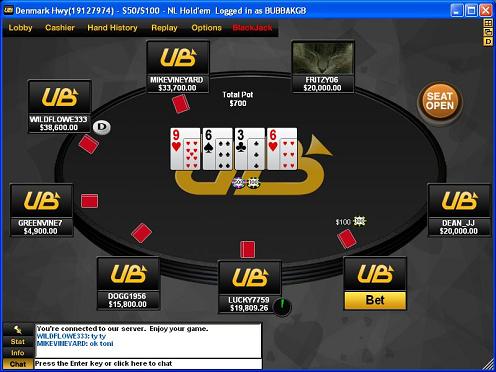Member Comments
No comments so far
 There are only two kinds of poker players in the world – winners and losers – but we all have one thing in common, we’re convinced we run badly. If I win the PokerStars Sunday Million this week, but get my A-A cracked by 6-6 next Sunday, chances are I’m not going to be very happy. I might even find an opportunity to complain to a friend on IM because, in the moment, it doesn’t matter that I won $250,000 last week. I got two-outed today.
There are only two kinds of poker players in the world – winners and losers – but we all have one thing in common, we’re convinced we run badly. If I win the PokerStars Sunday Million this week, but get my A-A cracked by 6-6 next Sunday, chances are I’m not going to be very happy. I might even find an opportunity to complain to a friend on IM because, in the moment, it doesn’t matter that I won $250,000 last week. I got two-outed today.
As poker players, we feel like we’re supposed to win every time we have A-A. It’s our right to have A-5 hold against K-Q; that 7-7 should always beat 3-3 all-in pre-flop. However, that’s just not the case because it’s impossible to hold an unbeatable hand pre-flop. We also too easily forget the times when our T-T draws out on J-J or we spike an ace on K-K. Whether we want to admit it or not, luck works both ways. We have selective memories and often fail to realize that complaining about a hand is silly and unproductive.
In fact, I’d be willing to wager that most players who whine incessantly actually run much closer to expectation than they think. Granted, there are statistical outliers, but they make up a tiny percentage of the overall poker population. We have an extremely skewed perception of our game and want to blame anything or anyone other than ourselves.
Think I’m just spewing gobbledygook? That’s fine; don’t take my word for it. A number of programs capable of telling you exactly how you’re running have recently hit the market. If you truly want a statistical and unbiased look at how unlucky you are, check out Hold’em Luck, Tourney Luck, and our favorite, PokerLuckMeter.com.
So how do these programs work? PokerLuckMeter.com calculates what they call your “Luck Percentile,” which they claim is reasonably accurate in assessing how the uncontrollable aspects of the game are affecting you. The site essentially quantifies the significance of the amount of money won or lost due to luck by generating a “p-value.” Your p-value is the probability of a more extreme result happening in a given hand than the one that actually occurred. All of this math jargon amounts to this: PokerLuckMeter.com can tell you, with decent but fallible accuracy, how much money you lost due to bad luck.
For many players, luck analyzing programs serve as a way to validate that they indeed run far below expectation. That’s all well and good for helping players feel better about themselves, but it’s not the real value of the software. The fact is that most players use bad luck as an excuse. That way, they never have to work on their game or admit that they’re not as good as they thought they were. However, I’m sure there are players who legitimately don’t know how good they are and PokerLuckMeter.com can be a huge benefit to them. If they input their hand histories and see they’ve been running pretty close to expectation, they can assume their game needs work.
Poker is a fickle game and, as heartbreaking as it often is, too many players fail to understand that there’s always room for improvement. In this admittedly imperfect poker player’s opinion, luck analyzers should be used not to decipher how unlucky you are, but rather serve as an honest assessment of your game.
No comments so far